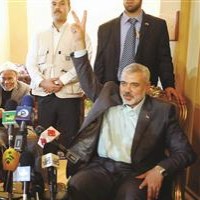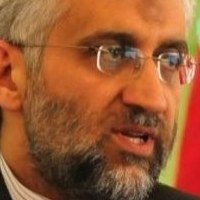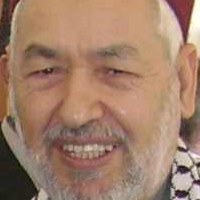![]()
Fri, Feb 04, 2011 | WikiLeaks
WikiLeaks: Defense Minister Mohamed Tantawi Resistant to Change in Egypt
Egyptian Defense Minister Field Marshal Mohamed Tantawi will travel to Washington, Tampa, and Chicago March 24-28. He will meet senior officials in Washington and at USCENTCOM HQ in Tampa, and view U.S. civil defense arrangements in Chicago. Mrs. Tantawi and as many as five senior generals will accompany him. Tantawi will seek assurances that the USG will not condition or reduce military assistance to Egypt in the future. He will emphasize Egypt’s continuing value to the United States as an indispensable ally in the region, and he will press to return BRIGHT STAR to a full field training exercise. The eighty-year-old veteran of five wars with Israel is committed to preventing another one ever. But he is also frozen in the Camp David paradigm and uncomfortable with our shift to the post-9/11 GWOT. Recognizing that he is reluctant to change, we nonetheless should urge Minister Tantawi towards a broader and more flexible partnership based on shared strategic objectives, including border security, counter-terrorism, peacekeeping and civil defense.
Source: WikiLeaks
2008-03-16 T16:43:00
S E C R E T SECTION 01 OF 02 CAIRO 000524
SIPDIS
SIPDIS
STATE FOR S AND NEA/FO WHITE HOUSE FOR OVP DOD FOR OSD
E.O. 12958: DECL: 3/16/28
TAGS: PARM, PREL, PGOV, MASS, MARR, PTER, IS, EG, XF”>XF
SUBJECT: SCENESETTER FOR MINDEF TANTAWI’S VISIT TO THE U.S. MARCH 24-28
REF: A. CAIRO 452 B. CAIRO 488 C. CAIRO 507
CAIRO 00000524 001.2 OF 002Classified By: Ambassador Francis Ricciardone for reasons 1.4 (a)(b)&(d).
1. (S) Summary: Defense Minister Field Marshal Mohamed Tantawi will travel to Washington, Tampa, and Chicago March 24-28. He will meet senior officials in Washington and at USCENTCOM HQ in Tampa, and view U.S. civil defense arrangements in Chicago. Mrs. Tantawi and as many as five senior generals will accompany him. Tantawi will seek assurances that the USG will not condition or reduce military assistance to Egypt in the future. He will emphasize Egypt’s continuing value to the United States as an indispensable ally in the region, and he will press to return BRIGHT STAR to a full field training exercise. The eighty-year-old veteran of five wars with Israel is committed to preventing another one ever. But he is also frozen in the Camp David paradigm and uncomfortable with our shift to the post-9/11 GWOT. Recognizing that he is reluctant to change, we nonetheless should urge Minister Tantawi towards a broader and more flexible partnership based on shared strategic objectives, including border security, counter-terrorism, peacekeeping and civil defense. End Summary.
2. (S) Border Control: Egyptian effectiveness in preventing arms smuggling into Gaza is essential to stopping Palestinian rocket fire into Israel. When the Secretary pushed hard on smuggling in October 2007, the Egyptians finally got serious and agreed to open an FMF case that will deploy counter-tunnel technology to the Rafah border. The case also includes extensive training. The initial shipment of equipment is expected in June. Training will begin this spring in the US, due to Egyptian sensitivity towards having foreigners stationed at their borders. The Egyptians are also building a concrete barrier wall on the Egyptian side to avoid a repeat of the January incursion, in which thousands of Gazans poured into Rafah.
3. (C) The Egyptians insist that they are committed to do all they can to stop smuggling into Gaza. They acknowledge the threat that Hamas poses to their own security and to the peace process. They claim to have discovered more than 200 tunnels since November 2005. Tantawi will argue that Egypt is doing everything within its power but is not the only source of weapons in Gaza. He believes that Israeli politicians are blaming Egypt for domestic political reasons and resents the impact on Egyptian military assistance. He will also urge that the USG exert influence on Israel to ease humanitarian conditions in Gaza. EGIS Chief Omar Soliman has the lead on negotiations with Hamas but Tantawi will also likely urge that Rafah be opened to ease humanitarian pressures in Gaza.
4. (S) With Tantawi we should acknowledge that the counter-tunneling technology that we will introduce this summer will contribute to interdiction efforts but does not represent a complete solution. Indeed the Army Corps of Engineers experts who designed the system have told us that the Gaza border represents a “worst case scenario” for interdiction. In a March 6 meeting with NEA A/S Welch, Tantawi hinted that the Egyptians have adopted additional measures at the border. We are still interested in a trilateral meeting with the Egyptians and Israelis (ultimately perhaps to include the PA) to share intelligence and tactics. So far the Israelis have demurred. We should broaden the discussion to maritime interdiction efforts and also addressing the weapons trail, which starts in Yemen and Sudan.
5. (S) Civil Defense: The Red Sea ferry accident in February 2006 embarrassed the Mubarak government and cost more than 1000 lives. Tantawi will bring to Washington his mandate from President Mubarak to integrate the military into crisis response management. On this he needs and will be grateful for our help — a small but important advance against the MOD’s staunch resistance to engagement with us in shifting their priorities and transforming their forces. ASD for Homeland Defense McHale has suggested including Egyptian representatives in U.S.-based civil emergency exercises
CAIRO 00000524 002.2 OF 002
planned for spring and fall 2008, and inviting GOE officials to a civil defense symposium at the Army War College this fall.
6. (S) Peacekeeping: Egypt has contributed to all UN and AU peacekeeping efforts in Africa, and is sending 1300-1400 troops for the UN/AU Mission in Darfur (UNAMID). Egypt has also offered UNAMID two additional mechanized infantry battalions; the UN has accepted one. Despite our repeated requests, the Egyptians declined to contribute helicopters; they simply do not have the logistical and operational capability to operate in Darfur’s challenging environment. We recommend that the helo request not be raised again.
7. (S) Reform: In the cabinet, where he still wields significant influence, Tantawi has opposed both economic and political reforms that he perceives as eroding central government power. He is supremely concerned with national unity, and has opposed policy initiatives he views as encouraging political or religious cleavages within Egyptian society. In a speech on March 9, Tantawi said one of the military’s roles is to protect constitutional legitimacy and internal stability, signaling his willingness to use the military to control the Muslim Brotherhood in the run-up to the April 9 municipal council elections. On economic reform, Tantawi believes that Egypt’s economic reform plan fosters social instability by lessening GOE controls over prices and production. Tantawi rejects any conditioning on Egyptian FMF on human rights or any other grounds. Before this year he thought that FMF was inviolable and regarded ESF as a layer of protection against possible cuts to FMF. He will argue that any conditions on military assistance are counter-productive. He will also state that the military is not behind human rights problems in Egypt and that U.S. Congressional human rights conditionally is mis-targeted.
8. (S) Washington interlocutors should be prepared to meet an aged and
change-resistant Tantawi. Charming and courtly, he is, nonetheless mired in a post-Camp David military paradigm that has served his cohort’s narrow interests for the last three decades. He and Mubarak are focused on regime stability and maintaining the status quo through the end of their time. They simply do not have the energy, inclination or world view to do anything differently. Nonetheless, for the benefit of Tantawi’s omnipresent aides, we should focus discussions on the future and how to operate as strategic partners as we face the challenges of that future together.
RICCIARDONE



 RSS
RSS












#WikiLeaks: Defense Minister Mohamed #Tantawi Resistant to Change in #Egypt | #Uprising http://j.mp/gdmeh4
#WikiLeaks: Defense Minister Mohamed #Tantawi Resistant to Change in #Egypt | #Uprising http://j.mp/gdmeh4
RT @CrethiPlethi: #WikiLeaks: Defense Minister Mohamed #Tantawi Resistant to Change in #Egypt | #Uprising http://j.mp/gdmeh4
WikiLeaks: Defense Minister Mohamed Tantawi Resistant to Change in …: ASD for Homelan… http://tinyurl.com/4elljvq #NAPOLITANO #USDHS
Tantawiに関するこのWikiLeaksの記事が何を意味するのか。結構怪しい人だな。他の記事で「Mubarak's Poodle」とか言われてるし。http://bit.ly/gbpOsr
[…] cables describes him in terms comparable to Mubarak, as a figure concerned primarily with maintaining order and the status quo: Tantawi has opposed both economic and political reforms that he perceives as eroding […]
El general Tantawi de #Egipto en los documentos filtrados por Wikileaks: http://bit.ly/fVLAE7
RT @Davidsegarra: El general Tantawi de #Egipto en los documentos filtrados por Wikileaks: http://bit.ly/fVLAE7
RT @Davidsegarra: El general Tantawi de #Egipto en los documentos filtrados por Wikileaks: http://bit.ly/fVLAE7
RT @Davidsegarra: El general Tantawi de #Egipto en los documentos filtrados por Wikileaks: http://bit.ly/fVLAE7
RT @Davidsegarra: El general Tantawi de #Egipto en los documentos filtrados por Wikileaks: http://bit.ly/fVLAE7
El general Tantawi de #Egipto en los documentos filtrados por Wikileaks: http://bit.ly/fVLAE7
RT @Davidsegarra: El general Tantawi de #Egipto en los documentos filtrados por Wikileaks: http://bit.ly/fVLAE7
RT @crethiplethi: WikiLeaks: Defense Minister Mohamed Tantawi Resistant to Change in Egypt http://t.co/IwR4pgcT